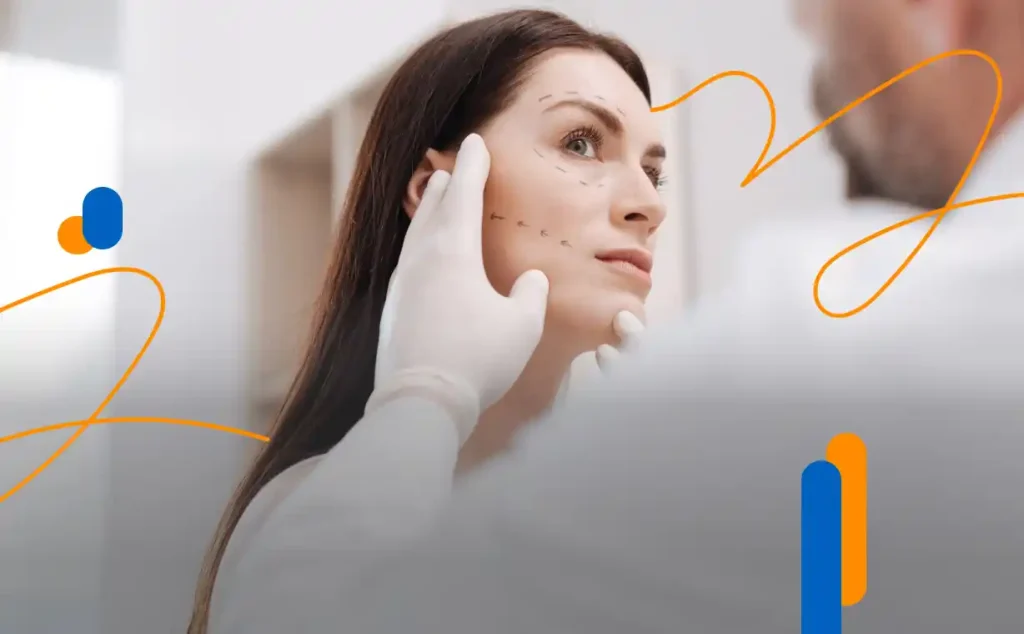Advanced aesthetics are no longer a taboo: more and more people are deciding to undergo this type of practice to improve their physical appearance. Just look at the figures: the global aesthetic medicine market size was USD 83.34 billion in 2023, calculated at USD 91.51 billion in 2024 and is expected to reach around USD 233.06 billion by 2034, expanding at a CAGR of 9.8% from 2024 to 2034, according to Precedence Research. While it is true that the motivations are adverse, there is no denying the growing demand for these interventions, both in men and women, as well as in people of all ages.
But documentation in the healthcare sector is not far behind. In advanced aesthetics, informed consent is one of those documents that we work with day in and day out. Interested in knowing more? Read on!
Informed consent in advanced aesthetics: what is it and how can it help?
In its article 4.11, the European Union regulation’s General Data Protection Regulation (GDPR), contains the following definition of consent:
“Consent is any freely given, specific, informed and unequivocal expression of will by which the data subject agrees, either by a statement or a clear affirmative action, to the processing of personal data concerning him or her”.
Although it is a legal right of the patient and an obligation for healthcare professionals, many users are not aware of the elements included in this document or what its characteristics are. If this is your case, we leave you a detailed guide on the aspects that an informed consent should contain.
Common challenges of managing informed consents in aesthetic treatments
However, when it comes down to it, working with informed consents or other documentation in the traditional way, i.e. with physical documentation, is not an easy task. Due to the high volume of documents that administrative staff in aesthetic treatments clinics deal with, a number of problems sometimes arise that can cause headaches:
- Problems with physical storage and organization of documents
- Lack of time and slow manual processes
- Security and protection of sensitive patient data
In short, aspects that are fundamental in any industry or sector, but especially in the healthcare sector. Because, let’s think about it: storing hundreds of patient records, as well as relevant medical information, sounds old-fashioned, doesn’t it?
For that reason and many others that we will tell you about below, it is advisable to make the leap towards digital tools that transform the processes of aesthetic clinics.
Electronic signature, an efficient and secure solution for aesthetic treatments
In this growing panorama, the electronic signature is presented as an agile and flexible solution that can help you in your day-to-day work as a specialist. From informed consents to any type of documentation that your patients need to sign. Always, with the focus on improving their experience, making procedures faster and keeping confidential or personal information safe.
Applications of electronic signatures in the healthcare sector
On a practical level, the electronic signature can be applied in numerous documents that are used every day in any health institution. If you usually read Viafirma’s blog, you will know that we have already talked about many of them, such as digital medical prescriptions or test results issued by laboratories. The sector is not alien to the digital transformation, with all the advantages that the electronic signature includes:
- Faster, better and more efficient procedures. No more having to go to sign a simple piece of paper. With electronic signatures, you can sign wherever you are: at home, in the office or at the supermarket. This advantage is especially relevant in emergency situations, where every minute counts, such as authorization for urgent medical procedures or the management of insurance-related paperwork.
- Confidentiality of signed documents. The document can only be recognized by authorized persons.
Legal security. Viafirma’s digital solutions comply with legal regulations and standards such as the eIDAS Regulation. This gives legal validity to the documents and they can be used, if necessary, in legal cases. - Less paper and costs, much more space. If we reduce the use of paper, we save on the costs of purchasing and storing it. But, in addition, we will also be doing our bit for the environment and the preservation of resources.
Take the digital step in your clinic with Viafirma
Now you know everything you need to know about the application of informed consents in the field of advanced aesthetics or aesthetic medicine, and how the electronic signature can become your best ally. If you want your clients to have a great user experience and sign documents quickly, legally and electronically, trust Viafirma to do it. We have a solid experience of more than 11 years helping medical institutions and healthcare professionals (medi centers or eye doctors, among others) all around the world to optimize their processes and gain agility in their daily work. The API of our electronic signature solutions, secure and easy to use, is one of the most competent in the market.
With it, we provide you with a service through which you can sign informed consents in advanced aesthetics securely and from any device, strengthening confidence in each transaction. What are you waiting for to make the leap to digital?
